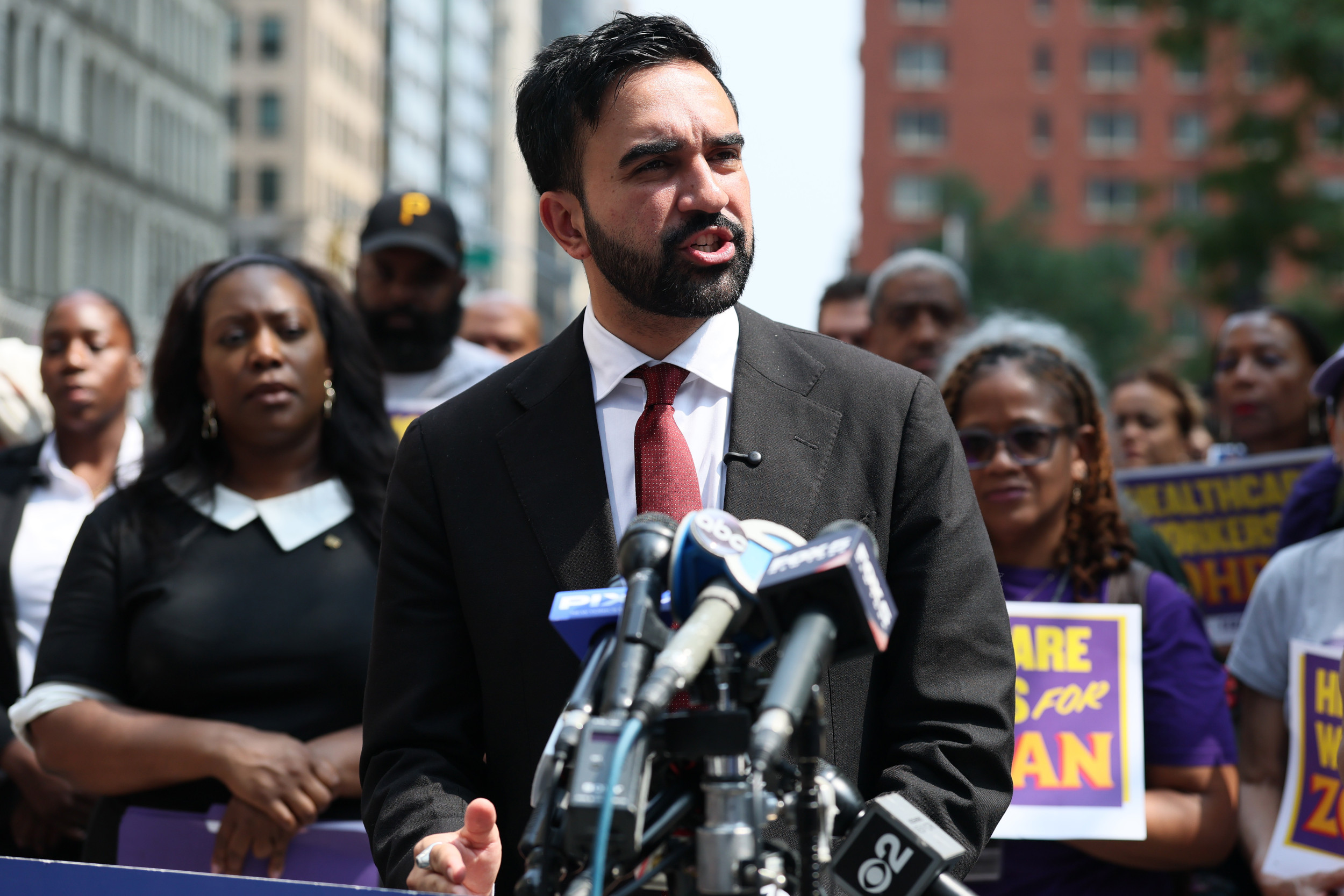
In June, democratic socialist Zohran Mamdani, a New York State Assembly member, achieved a stunning victory in New York City’s ranked-choice Democratic primary for mayor. Following Mamdani’s win—what some see as a transcendent moment in national politics—pundits have gone to great lengths trying to decode what democratic socialism, a relative anomaly in America, actually is. Along the way, commentators have scuttled important details, understating or overstating the movement’s potential spoils and perils. And here lies Democrats‘ biggest challenge to selling democratic socialism to voters—especially the party’s scorned and thinning racial minority base. Racial minority voters are more risk-averse in their voting behavior than white voters, and Democrats, including Mamdani, simply haven’t given them strong reasons to believe in democratic socialism. Yet.
As an alternative to free-market capitalism, democratic socialism has long struggled with branding, often perceived as utopian or overly redistributive in nature. But democratic socialism also suffers from a deeper representational problem. Rallies and social media feeds tend to present its most vocal supporters as white urban millennials, upper-crust Gen Zers, and “Bernie Bros,” those who ironically would seem to have both the least to gain and least to lose from aligning with democratic socialism.
Michael M. Santiago/Getty Images
Opponents peg democratic socialism as a radical, bohemian ideology that could push the U.S. toward authoritarianism, pointing to socialist governments (sans the “democratic” part) in countries like Cuba, Venezuela, and Nicaragua. Proponents romanticize democratic socialism, envisaging Nordic countries like Denmark and Sweden where worker-led economies and strong safety nets reign. Nordic countries though are small, culturally monolithic, and overwhelmingly white, raising real questions about whether democratic socialism could flourish in a large, racially and culturally diverse country like the U.S.
Until Mamdani’s surprising victory, pollsters were unconvinced that democratic socialism reflected a serious movement. To this end, polling data remains limited, rarely capturing the distinction between “socialism” and “democratic socialism,” the latter explicitly incorporating democratic processes and checks and balances. A 2022 Pew poll found socialism was viewed favorably by 52 percent of Black, 49 percent of Asian, and 41 percent of Hispanic respondents—compared to just 31 percent of white respondents. It’s one thing though to embrace a political ideal, and quite another to vote for candidates who embody it.
The main thrust of democratic socialism—economic fairness—resonates with many Americans, but potentially more so with racial minorities due to their history of exclusion from the workforce, housing, and other critical dimensions of the American ecosystem. But how that fairness is achieved remains the sticking point. And given years of opaque and failed promises from Democratic policymakers to level the playing field, many Black voters remain skeptical. Black voters’ skepticism though largely centers on the thorny issue of electability, not simply effectiveness, and it’s an issue the Democratic political establishment must untangle.
For racial minority voters, concerns about electability, particularly when sparked or reinforced by trusted political leaders from their communities, can make them shy away from candidates with bold ideas that speak to their core issues. Elder democratic socialist Bernie Sanders epitomizes this conundrum. During the 2020 Democratic presidential primaries, 61 percent of voters in South Carolina, where Democrats are mostly Black, said that South Carolina U.S. Congressman Jim Clyburn’s endorsement of Joe Biden was an important part of their decision. South Carolinians’ decision proved hugely important in swaying the eventual nomination away from Sanders to Biden. Clyburn, for his part, implied that the Sanders campaign didn’t “aggressively” seek his endorsement. That’s a misstep democratic socialist candidates can’t afford to repeat.
But there are broader issues. Barack Obama‘s naked appeals to greater socioeconomic equity on the presidential campaign trail in 2008 and 2012 invited insinuations—from both Republican critics and even Democrats—that he was flirting with socialism. Obama overcame the critiques; and his presidency, anticlimactically, ended up being thoroughly centrist, very far from a paragon of democratic socialism, let alone socialism. This deeply dismayed not just his progressive supporters, but his Black backers.
Like Obama, and unlike Sanders, Mamdani oozes the vital kind of charisma that makes candidates feel relatable and trustworthy. However, unlike President Obama, and very much like Bernie Sanders, Mamdani hasn’t initially made big inroads with Black voters, an essential step for any democratic socialist aiming to grow beyond liberal enclaves.
There are two lessons to be heeded here. First, Democratic candidates with democratic socialist ideals must have the right messaging to overcome political establishment resistance, something Mamdani is currently pressure-testing. Second, when candidates move away from their own fresh, invigorating democratic socialist ideals, they risk alienating their most loyal and passionate voters.
A pivot toward democratic socialism, or even a willingness simply not to obstruct candidates who embrace it, might be the bold gamble Democrats need to take. However, the party must recognize that for its indispensable racial minority voters, the devil you know is better than the one you don’t. And as is almost always the case with socialist politics, the devil is in the details.
Jerel Ezell is a sociologist and visiting professor at the University of Chicago Medical Center.
Sugy Choi is an assistant professor in the Department of Population Health at the New York University Grossman School of Medicine.
The views expressed in this article are the writers’ own.
